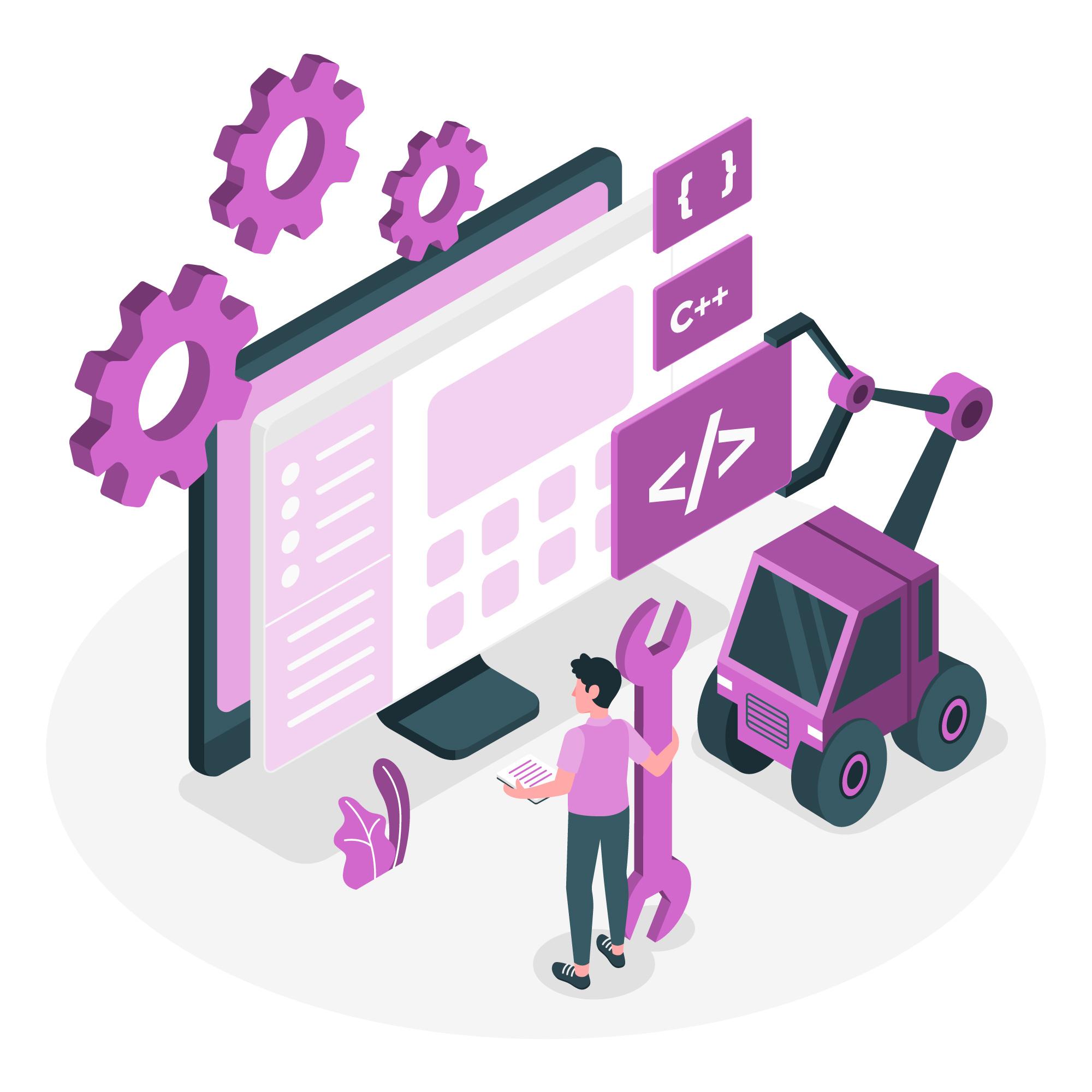Software development for the transport industry involves the creation of software applications and solutions to support various aspects of transportation operations and management. With the rise of technology, the software has become an integral part of the modern transportation sector, enabling organizations to improve efficiency, safety, and profitability. In this article, we will explore the various ways in which software development supports the transport industry.
Route Planning and Optimization: One of the challenges in the transportation industry is planning and executing efficient routes. Software development can help address this challenge by providing route optimization solutions. These applications use algorithms to determine the most efficient routes based on factors such as distance, time, fuel consumption, and road conditions. The software also considers real-time traffic updates and other dynamic factors to generate updated routes on the fly. This helps transport companies reduce costs and improve customer satisfaction by reducing travel time and improving reliability.
Vehicle Tracking: Another area where software development has made a significant impact is in the realm of vehicle tracking. Fleet management software allows transport companies to monitor their vehicles in real-time, providing valuable information such as location, speed, and fuel consumption. This information can be used to optimize routes, reduce fuel consumption, and minimize vehicle downtime. Vehicle tracking software also provides a secure means of monitoring vehicles and their cargo, reducing the risk of theft and damage.
Cargo Management: The transport industry relies heavily on the transit of goods and cargo. Software development has provided tools to help transport companies manage this process more efficiently. Cargo management systems allow companies to track shipments, monitor delivery schedules, and manage inventory levels. This information can be used to optimize routes, reduce costs, and improve customer satisfaction by providing real-time updates on delivery status.
Passenger Management: Software development has also revolutionized passenger management. Passenger management systems allow transport companies to track the location of vehicles, manage schedules, and monitor passenger numbers. It is possible to optimize routes, improve safety, and provide better customer service using this information. The software can also be integrated with booking systems, allowing passengers to book and pay for their travel online.
Maintenance Scheduling: The maintenance of vehicles is a crucial aspect of the transport industry, as it ensures the safety and reliability of vehicles and helps minimize downtime. Software development has provided tools to help transport companies manage the maintenance of their vehicles. Maintenance scheduling systems allow companies to plan and schedule regular maintenance, monitor vehicle health, and track maintenance costs. This information can be used to reduce costs and improve the reliability of vehicles, ensuring that they are always available when needed.
Financial Management: The transport industry is a complex and competitive business. Therefore, effective financial management is essential to success. Software development has provided tools to help transport companies manage their finances more efficiently. Financial management systems allow companies to track revenue and expenses, generate financial reports, and manage budgets.
This information can be used to make informed decisions about pricing, route planning, and investment.
The use of technology in the transport industry has revolutionized the way companies operate, providing tools to help transport companies make informed decisions, reduce costs, and improve customer satisfaction. The future of software development in the transport industry looks bright, with ongoing advancements providing new and innovative ways to support the industry.
In conclusion, software development has a pronounced impact on the transport industry, providing tools to help companies plan and execute efficient routes, manage vehicles and cargo, improve customer service, minimize vehicle downtime, manage finances, and make informed decisions. The use of technology in the transport industry will continue to evolve, and the future looks bright for software development in this sector.

<script type="application/ld+json">
{
"@context": "http://schema.org",
"@type": "Article",
"name": "How can software development benefit the transport industry?",
"author": {
"@type": "Person",
"name": "Majestic"
},
"image": "https://www.sgstechnologies.net/sites/default/files/2023-02/10805860_4537545.jpg",
"articleSection": "Software development for the transport industry involves the creation of software applications and solutions to support various aspects of transportation operations and management. With the rise of",
"articleBody": "technology, the software has become an integral part of the modern transportation sector, enabling organizations to improve efficiency, safety, and profitability. In this article, we will explore the various ways in which software development supports the transport industry.</P>\n\n<P><STRONG>Route Planning and Optimization:</STRONG> One of the challenges in the transportation industry is planning and executing efficient routes. Software development can help address this challenge by providing route optimization solutions. These applications use algorithms to determine the most efficient routes based on factors such as distance, time, fuel consumption, and road conditions. The software also considers real-time traffic updates and other dynamic factors to generate updated routes on the fly. This helps transport companies reduce costs and improve customer satisfaction by reducing travel time and improving reliability.</P>\n\n<P><STRONG>Vehicle Tracking:</STRONG> Another area where software development has made a significant impact is in the realm of vehicle tracking. Fleet management software allows transport companies to monitor their vehicles in real-time, providing valuable information such as location, speed, and fuel consumption. This information can be used to optimize routes, reduce fuel consumption, and minimize vehicle downtime. Vehicle tracking software also provides a secure means of monitoring vehicles and their cargo, reducing the risk of theft and damage.</P>\n\n<P><STRONG>Cargo Management:</STRONG> The transport industry relies heavily on the transit of goods and cargo. Software development has provided tools to help transport companies manage this process more efficiently. Cargo management systems allow companies to track shipments, monitor delivery schedules, and manage inventory levels. This information can be used to optimize routes, reduce costs, and improve customer satisfaction by providing real-time updates on delivery status.</P>\n\n<P>Passenger Management: Software development has also revolutionized passenger management. Passenger management systems allow transport companies to track the location of vehicles, manage schedules, and monitor passenger numbers. It is possible to optimize routes, improve safety, and provide better customer service using this information. The software can also be integrated with booking systems, allowing passengers to book and pay for their travel online.</P>\n\n<P><STRONG>Maintenance Scheduling:</STRONG> The maintenance of vehicles is a crucial aspect of the transport industry, as it ensures the safety and reliability of vehicles and helps minimize downtime. Software development has provided tools to help transport companies manage the maintenance of their vehicles. Maintenance scheduling systems allow companies to plan and schedule regular maintenance, monitor vehicle health, and track maintenance costs. This information can be used to reduce costs and improve the reliability of vehicles, ensuring that they are always available when needed.</P>\n\n<P><STRONG>Financial Management:</STRONG> The transport industry is a complex and competitive business. Therefore, effective financial management is essential to success. Software development has provided tools to help transport companies manage their finances more efficiently. Financial management systems allow companies to track revenue and expenses, generate financial reports, and manage budgets.</P>\n\n<P>This information can be used to make informed decisions about pricing, route planning, and investment.</P>\n\n<P>The use of technology in the transport industry has revolutionized the way companies operate, providing tools to help transport companies make informed decisions, reduce costs, and improve customer satisfaction. The future of software development in the transport industry looks bright, with ongoing advancements providing new and innovative ways to support the industry.</P>\n\n<P>In conclusion, software development has a pronounced impact on the transport industry, providing tools to help companies plan and execute efficient routes, manage vehicles and cargo, improve customer service, minimize vehicle downtime, manage finances, and make informed decisions. The use of technology in the transport industry will continue to evolve, and the future looks bright for <A href=\"https://www.sgstechnologies.net/contact\">software development</A> in this sector.",
"url": "",
"publisher": {
"@type": "Organization",
"name": "SGS"
}
}
</script>










